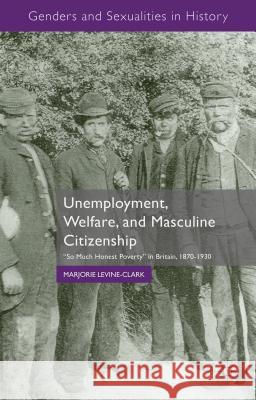Unemployment, Welfare, and Masculine Citizenship: So Much Honest Poverty in Britain, 1870-1930 » książka
Unemployment, Welfare, and Masculine Citizenship: So Much Honest Poverty in Britain, 1870-1930
ISBN-13: 9781137393203 / Angielski / Twarda / 2015 / 304 str.
Unemployment, Welfare, and Masculine Citizenship: So Much Honest Poverty in Britain, 1870-1930
ISBN-13: 9781137393203 / Angielski / Twarda / 2015 / 304 str.
(netto: 384,26 VAT: 5%)
Najniższa cena z 30 dni: 385,52
ok. 22 dni roboczych
Bez gwarancji dostawy przed świętami
Darmowa dostawa!
In the late nineteenth century, the extent of unemployment in Britain challenged prevailing ideologies that insisted on men's economic independence and blamed the poor for their poverty. With increasing numbers of newly-enfranchised men who had been regular workers applying for humiliating poor relief, policymakers produced structural explanations for unemployment that recognized men could not always find work even when they wanted it. In the face of these new economic and political realities, a remarkably broad consensus developed around a model of working-class masculinity that incorporated dependence on welfare, promising honest unemployed men a status that identified them as citizens, not as moral failures who deserved to be shamed. This book examines how, from the late nineteenth century through the 1920s, British policymakers, welfare providers, and working-class men struggled to come to terms with changing relationships among unemployment, welfare, and masculine citizenship.











